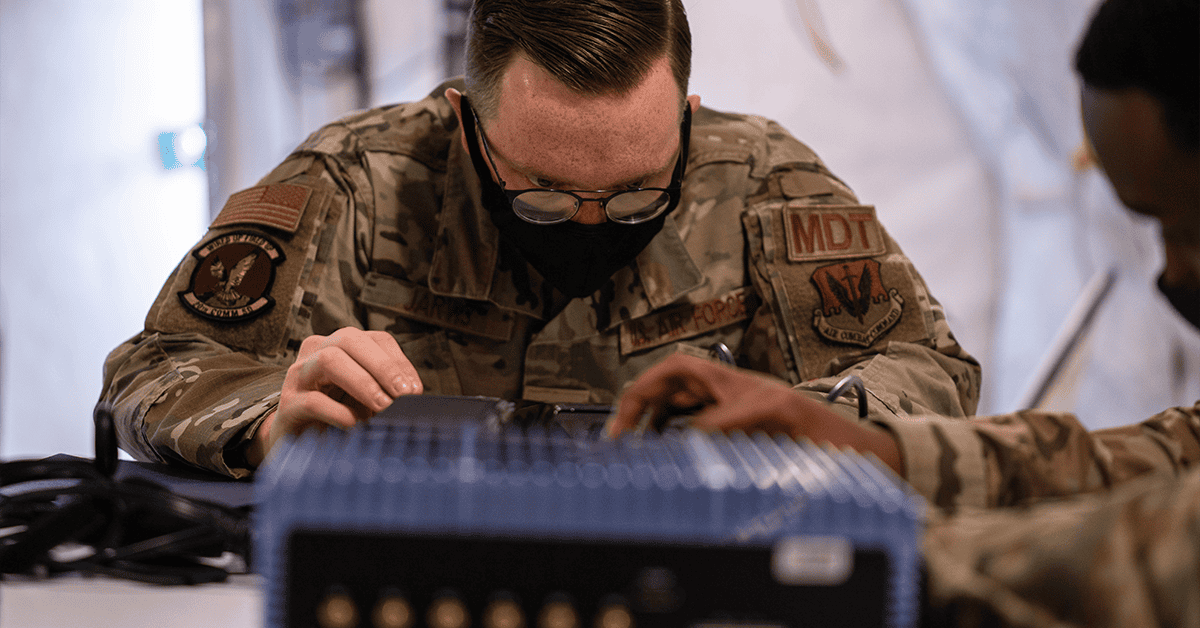
What are the Top Government Contracts Won by the Air Force Research Lab?

There have been top government contracts won by the Air Force Research Lab (AFRL). The Air Force Research Laboratory (AFRL) is one of the premier research and development facilities of the United States Air Force and Space Force. The laboratory focuses on innovative solutions, aerospace systems, space technologies, and other space-related technology development to advance the air, space, and cyberspace capabilities of the Department of Defense.
Top government contracts won by the Air Force Research Lab
Take a look at the list below and see which government contracts the AFRL has been assigned as the contracting activity over the past few years.
Five Contractors Won IDIQ Contract Awards for Cyber Missions of the Air Force and Partner Organizations
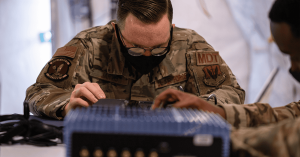
- Contractor/s: Assured Information Security, CNF Technologies, Global Infotek, Invictus International Consulting LLC, and Radiance Technologies
- Contract type: Indefinite-delivery/indefinite-quantity contract
- Value: $950 million
- Contract date: May 31, 2022
The Air Force Research Laboratory oversaw the contracting activities of five contractors—Assured Information Security, CNF Technologies, Global Infotek, Invictus International Consulting, and Radiance Technologies—for the development and integration of cyber solutions for the Air Force and partnership with organizations. The contractors shared $950 million of funding from fiscal 2022 research and development Air Force funds.
The scope of work covered technical documentation, reports, and software and hardware development to support the research and development, evaluation, prototyping, and transition of the defense market’s cyber capabilities. The IDIQ contract awards were finalized in Rome, New York, on May 31, 2022, through completion in April 2023.
Seven Contractors Secured an IDIQ Contract Award for the Advanced Aerospace Systems Technology Research Program
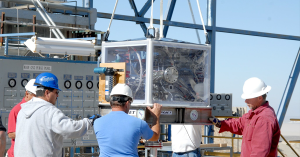
- Contractor/s: General Atomics Aeronautical Systems, Lockheed Martin, Northrop Grumman Aeronautics Systems, Raytheon Technologies, Boeing Co., Aurora Flight Sciences, and Kratos Unmanned Aerial Systems
- Contract type: Indefinite-delivery/indefinite-quantity contract
- Value: $400 million
- Contract date: April 4-7, 2023
Seven contractors have secured IDIQ contracts with a shared ceiling amount of $400 million for the Advanced Aerospace Systems Technology Research Program. The contractors were awarded on different dates: General Atomics Aeronautical Systems, Lockheed Martin, and Northrop Grumman Aeronautics Systems were awarded on April 4; Raytheon Technologies and Boeing Co. on April 5; Aurora Flight Sciences on April 6; and Kratos Unmanned Aerial Systems on April 7.
The Advanced Aerospace Systems Technology Research Program’s primary objective is to conduct research and development toward creating new aerospace vehicle technologies, designs, and integrated systems to provide advanced capabilities to the Department of the Air Force. The Air Force Research Laboratory serves as the contracting activities to achieve this goal.
Work performance commences in each contractor facility through the awards’ seven-year duration, with completion dates of April 4-7, 2030. The program’s funding comes from fiscal 2023 research, development, test, and evaluation funds, granting varying amounts per contractor at the time of awards.
Leidos Finalized a Contract with the Air Force Research Lab for the Mayhem Program’s Hypersonic Planes
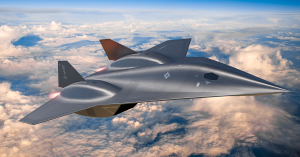
- Contractor/s: Leidos
- Contract type: Single award, indefinite-delivery/indefinite-quantity contract
- Value: $334 million
- Contract date: December 16, 2022
The Air Force Research Lab has been the contracting activity for Leidos’ $334 million IDIQ contract award for the research and development of the Mayhem program. It aims to produce large-scale air-breathing hypersonic systems for the Department of Defense, improving successful mission executions and strengthening technological advancements for future capabilities.
The federal government finalized the contract amid Russia’s introduction of a hypersonic missile system, the Kh-47M2 Kinzhal, in 2018. To assert military superiority in air, space, and cyber domains, the U.S. Armed Forces finalized contracts with Leidos under Project Mayhem. Additionally, the military partnered with leading engineering organizations to build hypersonic planes.
Work performance has commenced at the Wright-Patterson Air Force Base in Ohio; various testing sites are to be determined through estimated completion by October 15, 2028. The contract awards were finalized through a competitive acquisition among six offers, with the funding secured from the fiscal 2022 research, development, test, and evaluation funds.
Sabre Systems Awarded for the Third Phase of Advanced Radio Frequency Systems Development
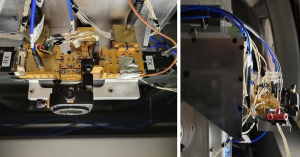
- Contractors: Sabre Systems Inc.
- Contract type: Indefinite-delivery/indefinite-quantity contract
- Value: $73.5 million
- Contract date: September 22, 2022
The Air Force Research Laboratory has awarded Sabre Systems Phase III Small Business Innovative Research (SBIR) IDIQ contract. For its third iteration, the company has focused on further developing its family of portable antennas and advanced electronic aircraft and equipping its HF antennas to address a variety of operations and environments.
Earlier SBIR contract phases aimed at research, development, testing, deployment, and refinement of advanced radio frequency (RF) systems. RF systems, including radar, communications, electronic warfare, signals intelligence, and direction finding, are developed to enhance communications capabilities for future missions and challenges.
Work under the Phase III Small Business Innovative Research (SBIR) IDIQ contract has commenced in Warminster, Pennsylvania, and is expected for completion by September 22, 2027. $73.5 million has been allocated for the contract, with the funding coming from the fiscal research, development, test, and evaluation funds.
Lockheed Martin Space Won a Contract for Payload Hardware and Software Development of a Flight-Qualified Vector
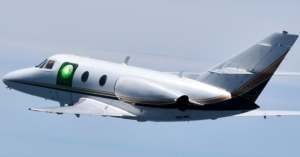
- Contractors: Lockheed Martin Space
- Contract type: Cost-plus-fixed-fee completion contract
- Value: $62.7 million
- Contract date: September 29, 2022
Lockheed Martin Space has secured a three-year $62.7 million contract for various payload hardware and software development activities. As part of the aerospace industry giant, Lockheed Martin, the company has been tasked to provide expertise in the research, design, demonstration, testing, integration, and delivery of a flight-qualified vector.
Work for the contract has commenced in Littleton, Colorado, with an estimated completion date of September 29, 2025. The contracting activity, Air Force Research Laboratory, has selected the contractor through competitive acquisition and secured the funding from the fiscal 2022 research, development, test, and evaluation funds.
About Air Force Research Laboratory
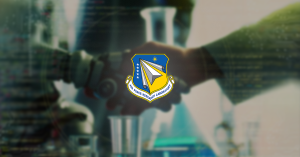
AFRL Logo from Air Force Materiel Command, licensed under Public Domain
The Air Force Research Laboratory (AFRL) leads the research, development, and delivery of warfighting technologies in air, space, and cyberspace. The laboratory has pioneered several aviation and space-based technologies of the United Air Force and Space Force, including the F-117 Nighthawk, B-2 Spirit, C-17 Globemaster, and the F-22 Raptor.
AFRL was founded on October 31, 1997, through the consolidation of four Air Force laboratory facilities—Wright, Phillips, Rome, and Armstrong—and the Air Force Office of Scientific Research. The laboratory was formed to build a unified command for all aviation, space, and cyber initiatives of the federal government. Since its founding, AFRL has been uniquely positioned to support the warfighting capabilities of the ever-evolving defense sector.
More than 25 years later, the Air Force Research Laboratory has expanded its operations in various facilities worldwide. The headquarters is located at Wright-Patterson Air Force Base, Ohio, with various locations in ten states: California, Florida, Hawaii, Nevada, New Mexico, New York, Tennessee, Texas, and Virginia. Additionally, AFRL operates in the United Kingdom, Chile, and Japan.
Delivering Unparalleled Research in Air, Space, and Cyber Forces
The Air Force Research Laboratory has done unparalleled research and created strategic partnerships to improve the U.S. military’s advantage in warfighters for the field. The laboratory continues to fulfill its mandate of leading the discovery, development, and integration of warfighting technologies in air, space, and cyber forces.

Category: Articles




